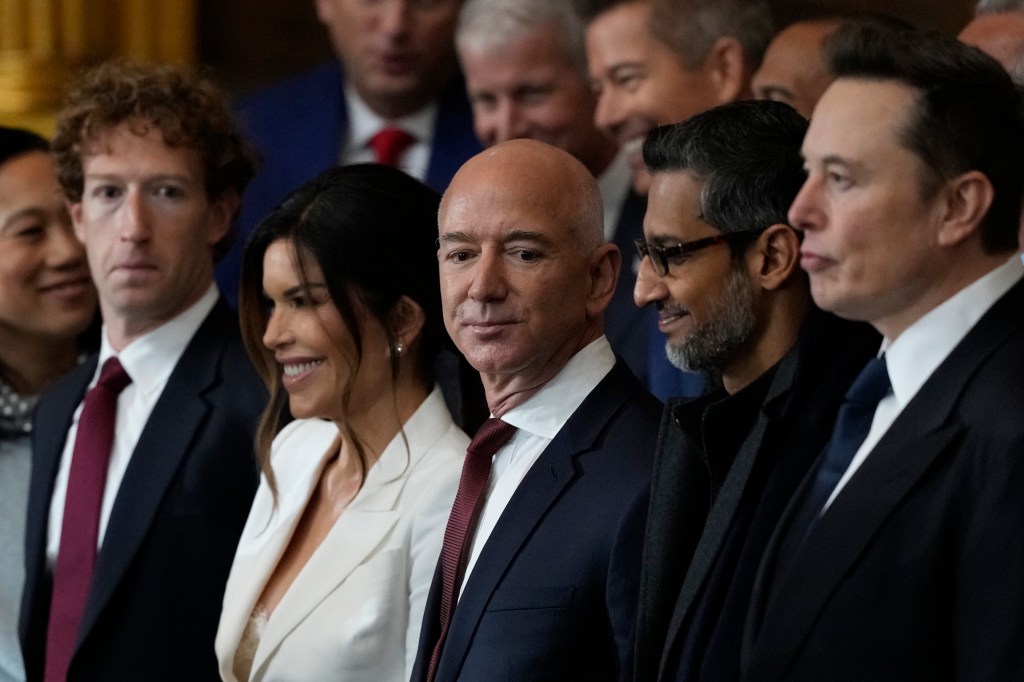Zuckerberg Lauds Trump Era: An Unexpected Perspective on American Innovation
In a striking turn of events, Mark Zuckerberg, the co-founder and CEO of Facebook (now Meta Platforms, Inc.), has publicly acknowledged the impact of the Trump administration on American technology. This surprising endorsement sheds light on how certain policies during this period fostered a climate of innovation and success for many leading tech companies. As Zuckerberg reflects on this era, it prompts a broader discussion about the intersection of politics and technology in today’s polarized landscape.
The Trump Administration’s Focus on Innovation
During Donald Trump’s presidency from 2017 to 2021, the tech industry experienced significant growth and transformation. The administration’s deregulation efforts, tax cuts, and emphasis on American jobs contributed to a robust environment for innovation. Zuckerberg’s remarks suggest that these strategies played a crucial role in enabling tech giants to thrive.
- Deregulation: The Trump administration rolled back numerous regulations that many in the business community deemed burdensome. This deregulation, particularly in sectors like telecommunications and energy, allowed tech companies to innovate without the constraints of excessive oversight.
- Tax Cuts and Jobs Act: The 2017 tax reform reduced the corporate tax rate significantly, giving companies more capital to invest in research and development. Zuckerberg pointed out that this financial breathing room allowed tech companies to push boundaries and explore new frontiers.
- Focus on American Jobs: Initiatives aimed at boosting American manufacturing and job creation resonated with tech companies that sought to invest in U.S. operations and workforce development. This created a fertile ground for innovation and growth.
The Rise of Tech Giants
Under the Trump administration, several tech firms flourished. Companies like Amazon, Apple, Google, and Facebook saw their market values skyrocket. Zuckerberg’s acknowledgment of this period indicates a recognition of the broader trends that benefited the tech sector.
For instance, Facebook itself expanded its user base and revenue during Trump’s presidency. The platform’s growth was partly fueled by the political discourse that dominated social media, with Facebook becoming a central stage for political engagement and advertising. This raised intriguing questions about how political climates can influence technological advancements and social media dynamics.
Challenges Faced by the Tech Industry
While Zuckerberg’s commendation of the Trump era highlights positive aspects, it’s essential to note the challenges that the tech industry faced during this time. Issues related to privacy, misinformation, and antitrust concerns came to the forefront, prompting calls for increased regulation of tech giants.
- Privacy Concerns: The Cambridge Analytica scandal and subsequent scrutiny over data privacy practices led to intense public debate about how tech companies handle user information. This scrutiny was not limited to the Trump administration but became a significant issue during and after his presidency.
- Misinformation: The rise of misinformation and fake news on social media platforms became a critical concern, especially during the 2020 presidential election. Zuckerberg and Facebook faced pressure to take stronger actions against misleading content, raising questions about the responsibility of tech companies in moderating content.
- Antitrust Scrutiny: As tech companies grew more powerful, antitrust investigations intensified. The government began to scrutinize the monopolistic tendencies of major players like Facebook and Google, which could lead to significant regulatory changes in the industry.
The Future of Tech in a Polarized Political Landscape
Zuckerberg’s praise for the Trump administration opens up a dialogue about the future of technology amidst a divided political climate. With the 2024 elections approaching, tech companies face an uncertain regulatory environment as different political factions propose varying approaches to governing the industry.
Some key considerations for the future include:
- Regulatory Developments: Depending on the outcome of upcoming elections, we may see significant shifts in how technology is regulated. A more pro-business administration might lean towards deregulation, while a more progressive government could impose stricter regulations on privacy, content moderation, and antitrust issues.
- Innovation vs. Regulation: The balance between fostering innovation and ensuring consumer protection will be a central debate. Tech leaders may need to advocate for policies that encourage growth while addressing public concerns about privacy and misinformation.
- Global Competitiveness: As international competitors, particularly in China, continue to advance in technology, the U.S. must find ways to maintain its competitive edge. This may involve bipartisan support for initiatives that bolster research, education, and infrastructure in tech.
Conclusion
Mark Zuckerberg’s commendation of the Trump era serves as a reminder of the intricate relationship between politics and technology. The administration’s policies arguably created an environment where American innovation could flourish, allowing leading companies to thrive. However, the challenges that arose during this period also highlight the need for a balanced approach to regulation and innovation.
As we look to the future, the tech industry must navigate a polarized political landscape while advocating for policies that support sustainable growth. The acknowledgment from a prominent tech leader like Zuckerberg may pave the way for more constructive dialogue between the tech sector and policymakers, emphasizing the importance of collaboration in fostering innovation that benefits everyone.
Ultimately, the lessons learned from the Trump administration could inform future strategies that balance the needs of innovation with the imperative of responsible governance. As technology continues to shape our lives, the ongoing dialogue between political leaders and tech innovators will be crucial in determining how America remains at the forefront of global innovation.
See more Business Focus Insider Team

